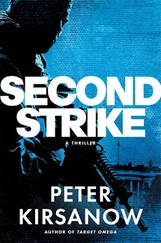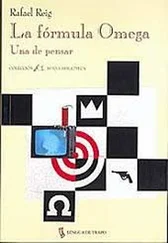Of course, the president’s demand went nowhere. In contrast, the draft resolution condemning Israel for the strikes and demanding no further incursions by the IDF into southern Lebanon rapidly picked up support.
Carole Tunney, the US ambassador to the UN, had spent the last two days trying to prevent the resolution from being brought up for a vote of the General Assembly. For a while it appeared the resolution might be tabled, but by midafternoon on Friday, momentum began to shift in favor of the draft.
Olivia was monitoring developments for Brandt from Washington. At approximately one thirty in the afternoon Tunney’s assistant informed Olivia that the UN would indeed vote to condemn Israel. Far worse, the resolution was expected to call for Israel to pull back all forces to its 1967 borders, to be enforced by threat of economic sanctions.
Olivia was disgusted. This was not simply a diplomatic insult to the United States. It had the potential to be a national security debacle for Israel. Requiring Israel to pull back to its 1967 borders would give Israel’s enemies command of the Golan Heights, exposing much of Israel’s population to rocket attacks. Olivia thought it highly unlikely that Israel would comply with the resolution and that an economic boycott would strengthen the hands of Hezbollah, Syria, and Iran, encouraging them to become even more aggressive and increasing the possibility that Turkey and even Egypt might join the fray. Israel could find itself in the ultimate dilemma: either face possible annihilation or unleash its nukes.
And the buzzing became louder.
Olivia had called Brandt to relay the developments at the UN. Brandt, who was with the president when Olivia called, received the news with his typical reserve. He agreed that the proposed resolution was breathtakingly irresponsible but was fairly confident the United States and Britain would prevail upon Egypt to stand down.
Olivia ordered an iced coffee and pondered what Brandt would recommend to the president if the resolution passed in the next seventy-two hours. She probably knew how his mind worked better than anyone, but despite his orderly and precise thought process, he was sometimes unpredictable — which was when he often came up with his best ideas.
Taking a long sip of coffee, Olivia finally yielded to the buzzing. Despite the urgency of the Middle East crisis, her mind kept returning to the puzzle of the Russian economy. In the midst of an economic downturn, they kept producing commodities no one wanted. It was as if the laws of supply and demand had been suspended. It made no sense, especially with the decline of their energy sector.
The buzzing came to a crescendo and abruptly stopped. The energy sector.
While world energy markets were struggling and energy prices were volatile, something peculiar was going on with Russian energy production. Olivia had first noticed it when scanning some unremarkable satellite surveillance photos of industrial sites. Nothing exotic in the photos, just fuel storage depots, tanker trucks, and pumps. But there were multitudes of them. And that was a problem. An as yet undefinable problem.
Olivia had no idea how big that problem was about to become.
DUMFRIES, VIRGINIA
JULY 13 3:35 P.M. EDT
Garin drove his Jeep onto a gravel access road about a quarter mile east of Jefferson Davis Highway. A shallow, heavily wooded ravine separated the access road and the backyards of the houses in Gene Tanski’s development.
Garin parked in the tall, reedy grass on the side of the access road so that the Jeep wouldn’t be readily visible to passersby, although it appeared the road was rarely used. He headed cautiously down the side of the ravine and through the woods toward Tanski’s backyard; in brown cargo pants and a tan T-shirt, he could’ve blended better into his surroundings, but at least he didn’t stick out.
He held the SIG at his right side. Crossing a small creek at the bottom, Garin ascended the opposite side of the ravine and could hear the sound of a lawn mower somewhere over the crest. It was unclear whether the sound was coming from Tanski’s yard or that of one of his neighbors, but as Garin climbed closer to the top of the hill he allowed himself to hope that Tanski was still alive. He’d known Tanski longer than any of the other members of the team. They had been on numerous deployments together in some of the most hostile territories imaginable. A former Delta staff sergeant, Tanski was one of the toughest and most resourceful operators in the nation’s covert arsenal.
Once, on a mission in Yemen a little more than two years earlier, Garin had been momentarily stunned by an RPG that had exploded only a few feet away from his position. He was conscious, barely so, but immobile. The concussion from the same explosion had knocked Tanski off his feet and blown his M4 from his grasp. Tanski and Garin’s defensive position just inside a vacant storefront was charged by four screaming combatants who believed one or both of the pair to be either dead or disabled. As the combatants stood over Tanski and Garin, ready to administer a coup de grâce, Tanski pulled his combat knife from his boot and in one motion sliced the femoral artery of the assailant closest to him, and as the man fell in agony, Tanski pulled him on top of his body, using him as a human shield. He then took the man’s AK-47 and, with smooth precision, shot the remaining combatants dead before they had even processed what was happening. Garin had passed out shortly thereafter. When he regained consciousness moments later, the combatant with the severed thigh was also dead. Garin never asked Tanski whether the cause of death was bleeding or something else. There was little need.
Unsure of the exact boundaries of Tanski’s property, Garin headed in the direction the lawn mower sound was coming from. When he got within twenty feet of the top of the hill he knelt down and crawled slowly until he was only a foot or two from the crest. There, he paused and then looked behind him and to each side for signs of any other human presence. He was alone.
The noise from the mower was fading gradually as Garin, flat on his stomach, looked over the top of the hill. The property was about two hundred feet wide and bordered on either side by rows of towering pines.
Garin could see the back of a man on a riding mower heading toward the rear of the house about seventy yards away. The red cap he was wearing was pulled down low over his head, making it difficult for Garin to tell whether it was Tanski or someone else, but as the tractor began to turn around on the return pass, the man’s profile, dominated by a bulbous nose broken in countless bar fights, left no doubt it was the former Delta operator.
Garin rose from his stomach and got to his feet, relieved to see his friend unharmed.
Seeing Garin, a puzzled look came over Tanski’s face. What the hell was his boss doing coming up from the ravine with a weapon at his side, looking as if he had been doing some weekend recce? Hadn’t he just gotten enough of that crap in Pakistan? As it would for any operator with Tanski’s experience, the unexpected fired his synapses, prompting his eyes to dart about the vicinity.
Garin returned the SIG to his pocket holster and raised his hand to wave when he saw a strong gust of wind blow Tanski’s cap off his head. Tanski began to wobble drunkenly in his seat and then collapsed off the tractor, the pressure sensors in the seat automatically shutting the machine off and bringing it to a halt. Tanski’s cap lay several feet from his body. There was, however, not even the slightest breath of wind.
Garin dove to the ground, pulled out his pistol, and crawled quickly backward into the tree line at the top of the ravine. He should’ve been able to hear a rifle shot over the drone of the tractor and concluded that the sniper must have used a suppressor. Blood was now covering Tanski’s entire face and it was clear that the top of his head had been torn off. Garin scanned the surrounding area and listened for movement. By the direction in which Tanski’s cap was blown off, Garin estimated that the sniper was positioned somewhere to Garin’s left, the vector suggesting no more than eighty to one hundred yards away.
Читать дальше












